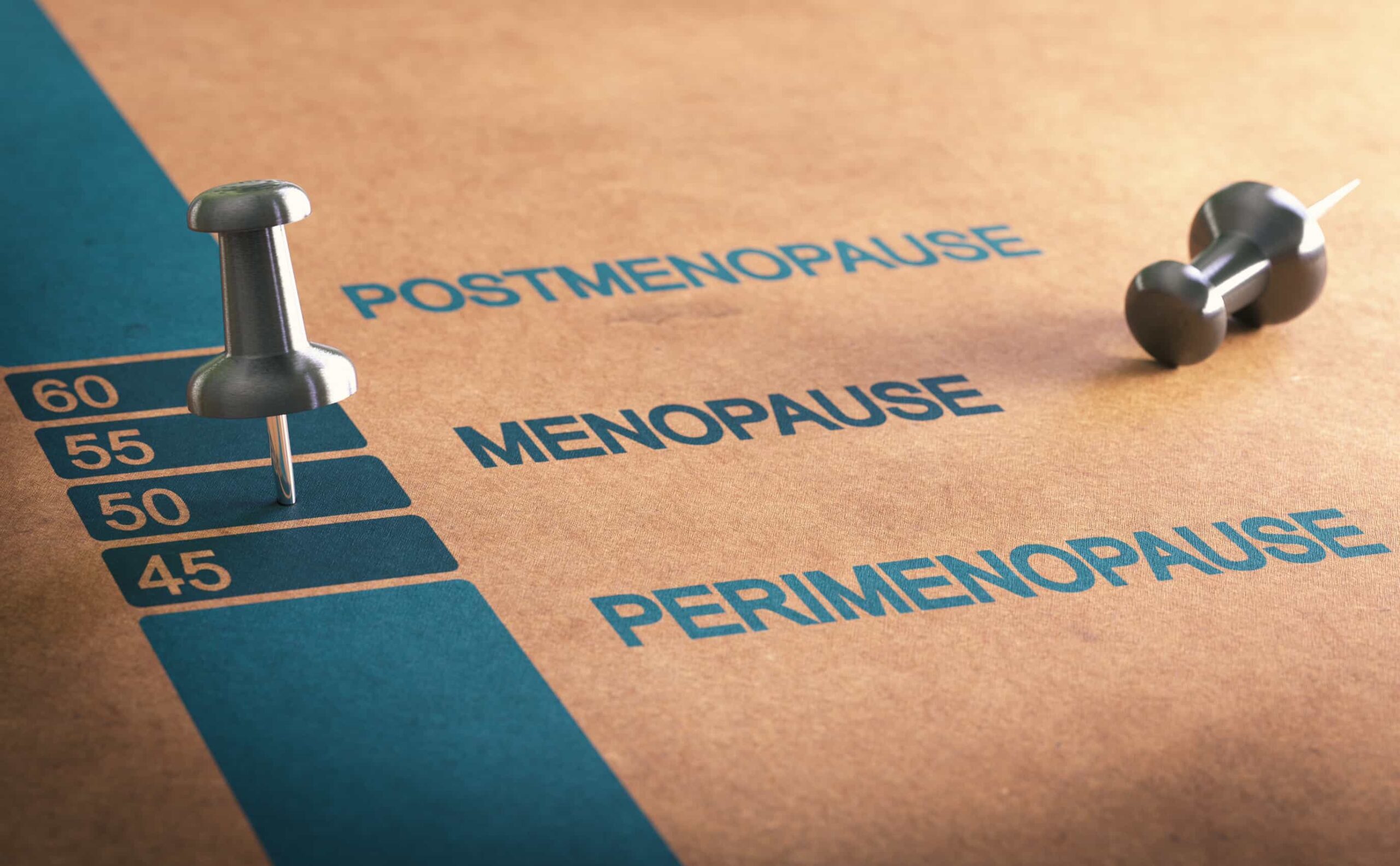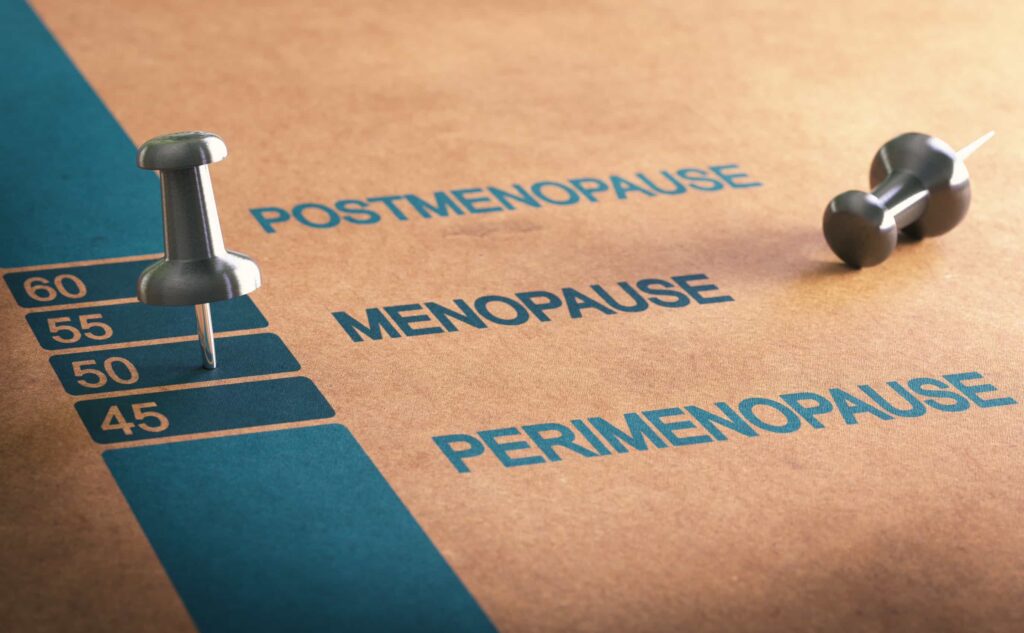
It usually occurs between ages 45 and 55 due to declining estrogen levels.
Menopause often brings skin changes such as:
– Dryness: Hormonal shifts can cause dryness, manageable with gentle cleansers and moisturizers.
– Thinning and sagging: Reduced collagen leads to thinner, wrinkled skin, especially around the jawline and neck.
– Age spots: Lower estrogen can increase melanin production, resulting in hyperpigmentation.
– Acne: Hormonal changes may trigger more acne.
– Other changes: This can include bruising, sun damage signs, and a higher risk of rosacea.
The American Academy of Dermatology reports that collagen levels can decrease by 30% in the first five years of menopause, resulting in sagging skin and wrinkles.
Additionally, bone loss can lead to facial hollowing and a less defined jawline. During this period, facial fat pads also shift; while jowl fat pads may enlarge, those in the upper and midface shrink, causing hollowing and sagging jowls.
Fat pads descending can result in more pronounced bags or dark circles under the eyes.
During menopause, hormonal changes often lead to hair loss, primarily due to decreased estrogen and progesterone levels.
This decline can cause hair shedding, thinning, and reduced density, particularly noticeable at the front, sides, or top of the head.
Lower estrogen also results in drier, more brittle hair. While complete baldness is rare, the extent of hair loss varies among women, with some experiencing minimal changes and others seeing more significant effects that may improve over time.
On average, women gain about 5 pounds during menopause, though not everyone experiences this.
Weight gain, particularly around the abdomen, is often linked to hormonal changes, aging, and lifestyle choices.
The decline in estrogen and progesterone can alter metabolism, reducing muscle mass and increasing fat.
Factors like diet, lack of exercise, poor sleep, and genetics also play a role in weight changes during this time.
During menopause, the vaginal region may experience several changes:
-Vaginal Atrophy: Symptoms include dryness, burning, itching, and a tighter opening, leading to discomfort during intercourse.
– Thinning of Vaginal Walls: Reduced estrogen can make the walls thinner and less elastic, increasing irritation and the risk of yeast infections.
-Decreased External Genital Tissue: Hormonal changes can also lead to thinning and irritation of the external genital area.
Menopause can affect libido, or sexual desire in some women, though not all experience these changes. Women may find it more challenging to attain arousal.
Declining estrogen levels, vaginal dryness, and physical symptoms like hot flashes and fatigue can reduce interest in sex.
Emotional factors such as stress, anxiety, sleep disturbances and night sweats may also contribute to decreased sexual desire.
During menopause, women may experience muscle atrophy, marked by reduced muscle mass and strength.
This is primarily due to a sharp decline in estrogen, which can hinder recovery from injuries and alter muscle function and fiber size.
Changes in sex hormone levels, especially estradiol, and increased inflammatory markers may also contribute to muscle dysfunction.
Menopause can cause increased androgen levels as estrogen and progesterone decline, leading to hirsutism—excessive hair growth in areas such as the face, chest, and abdomen.
About 10% of women in the U.S. experience hirsutism, and treatments include laser hair removal, electrolysis, or depilatories.
A healthcare provider may check hormone levels and recommend solutions such as weight loss or finasteride, as stable testosterone levels can cause coarse facial hair when estrogen drops.
Menopause is a multifaceted condition that involves various physiological systems and is typically managed by a gynecologist, primary care physician, or a functional medicine practitioner.
Osteoporosis is a skeletal disorder characterized by decreased bone density and quality, leading to an increased risk of fractures. It is particularly prevalent among postmenopausal women due to the decline in estrogen levels, which play a crucial role in maintaining bone density.
Cognitive function encompasses mental processes like attention, memory, reasoning, and executive function. During menopause, usually in midlife, hormonal fluctuations, especially in estrogen, can significantly affect cognitive abilities.
Mood swings during menopause are a common phenomenon attributed to hormonal fluctuations, particularly the decline in estrogen levels. These fluctuations can lead to emotional instability, irritability, anxiety, and depression in some women.
Insomnia is a prevalent sleep disorder marked by trouble falling asleep, staying asleep, or waking too early. It can affect health, mood, and daily life. Hormonal changes can worsen sleep patterns, increasing fatigue, brain fog and reducing quality of life.
